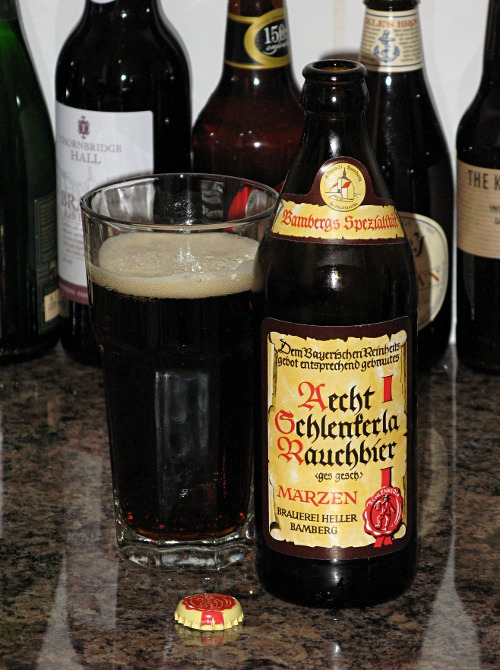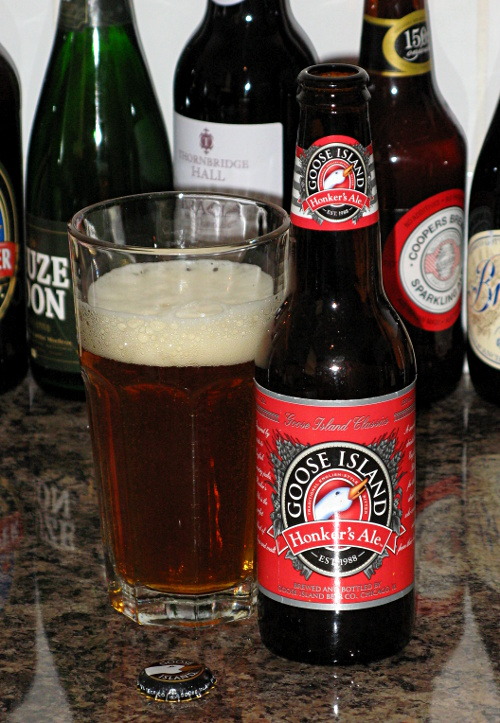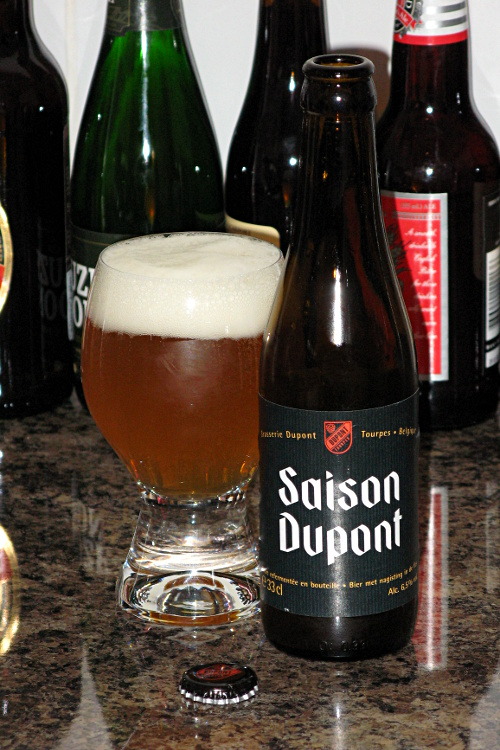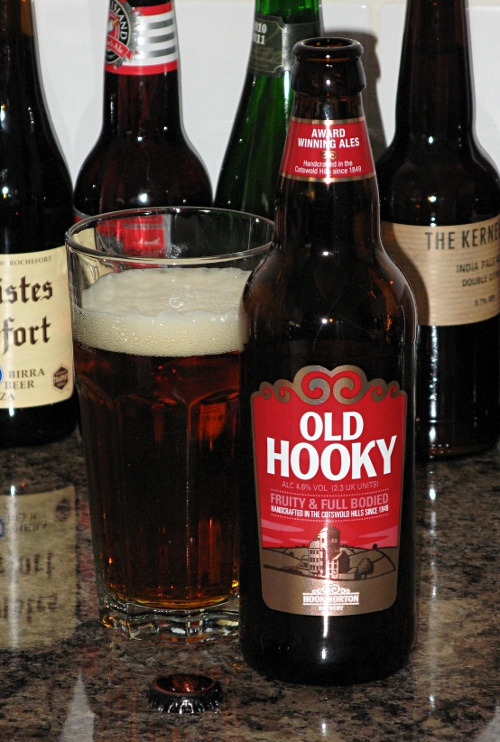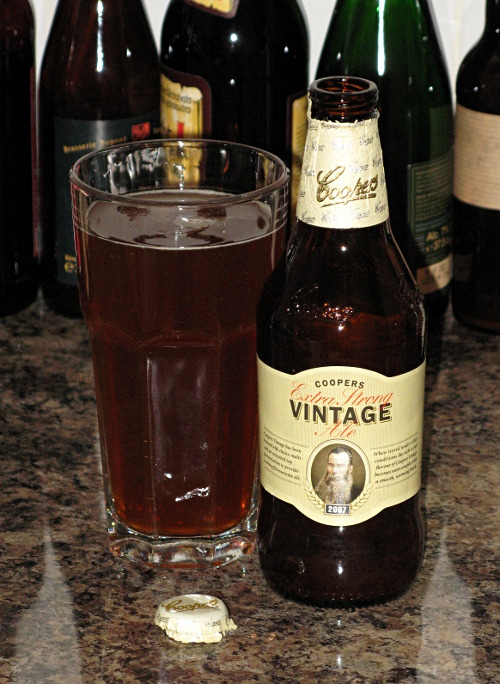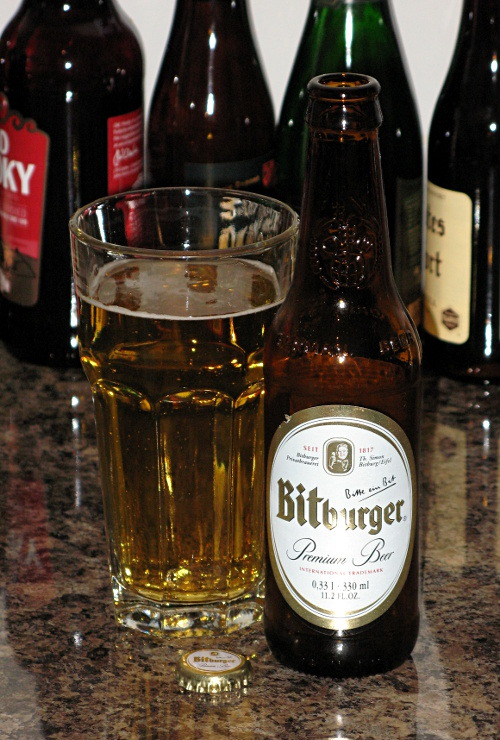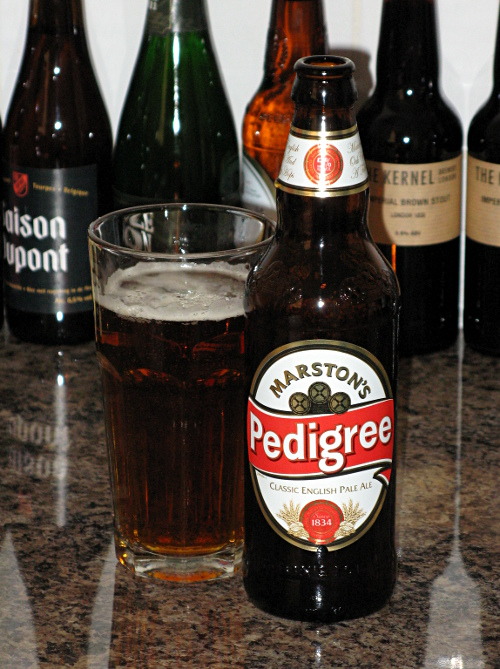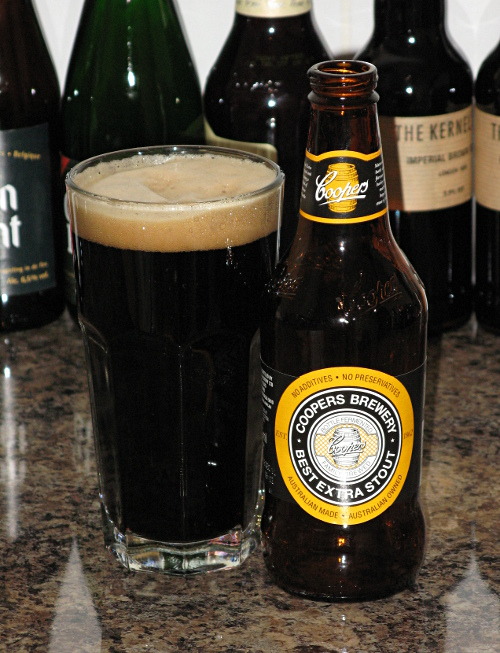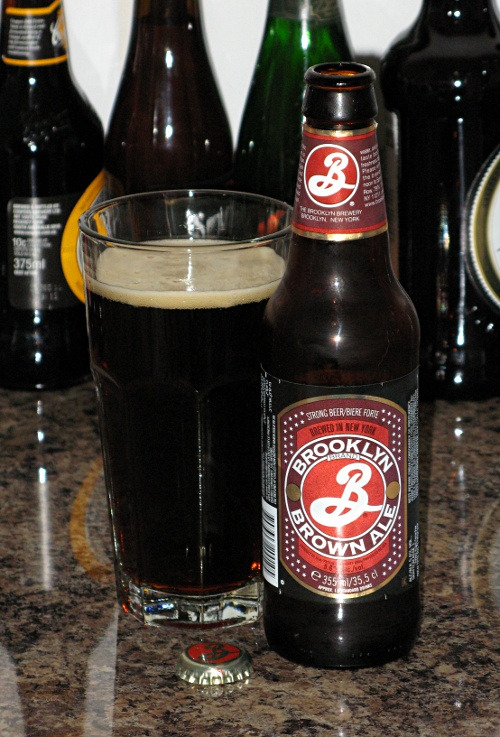This is the first beer I’ve ever tried from the Pitfield Brewery, and until today I knew very little about them. In fact, I still know very little other than they are a small, independent brewery with a complicated history.
Founded in the cellar of a specialist beer shop in Pitfield Street in Shoreditch, London, the brewery is now based on a farm in the Essex countryside, having changed location and ownership several times over its 30-year existence.
The core beers in Pitfield’s range are all certified organic and vegan, but are otherwise a fairly traditional-looking selection of pale ales, IPAs, porters and stouts. The naming of the Shoreditch Stout harks back to the brewery’s geographical roots, and conveniently I didn’t have to travel to Essex to find it: instead all that was required was a ten-minute stroll from the office to Old Street in—appropriately enough—Shoreditch.
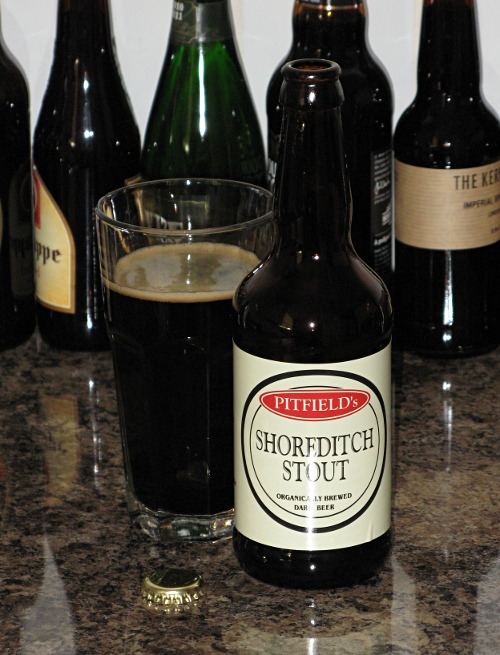
Pitfield Shoreditch Stout pours a deep blackish brown colour, as befits a stout, and there’s a generous tan lacing and a promising smoky aroma. It’s remarkably malty and full of date, fig and other dried fruit flavours topped off with a dry, bitter and slightly salty finish.
This one is a little lighter-bodied than might be expected from a truly top-notch stout, but it’s far from watery. It’s very drinkable, and at a restrained 4.0% ABV it’s eminently sessionable.
I may be a little spoilt in the stout department, having easy access to the Kernel Brewery and their magnificent Export and Imperial Brown stouts, but I do feel the Shoreditch Stout struggles to really distinguish itself from many other half-decent stouts. That said, if the vegan/organic thing is up your street then this is probably one of your better options.
There are two more Pitfield beers in The Book: a London Porter and an Imperial Stout. I’ve yet to find a source for the latter, but I certainly look forward to tracking it down and seeing how it compares to this one.
Facts and Figures
| Brewery: | Dominion Brewery Co, Moreton, Essex, England |
| Style: | Porters and Stouts |
| Strength: | 4.0% ABV |
| Found at: | City Beverage Company, Old Street, London EC1 |
| Serving: | 500ml Bottle |

